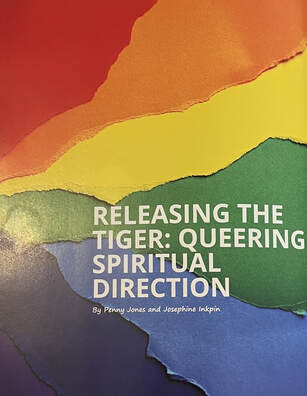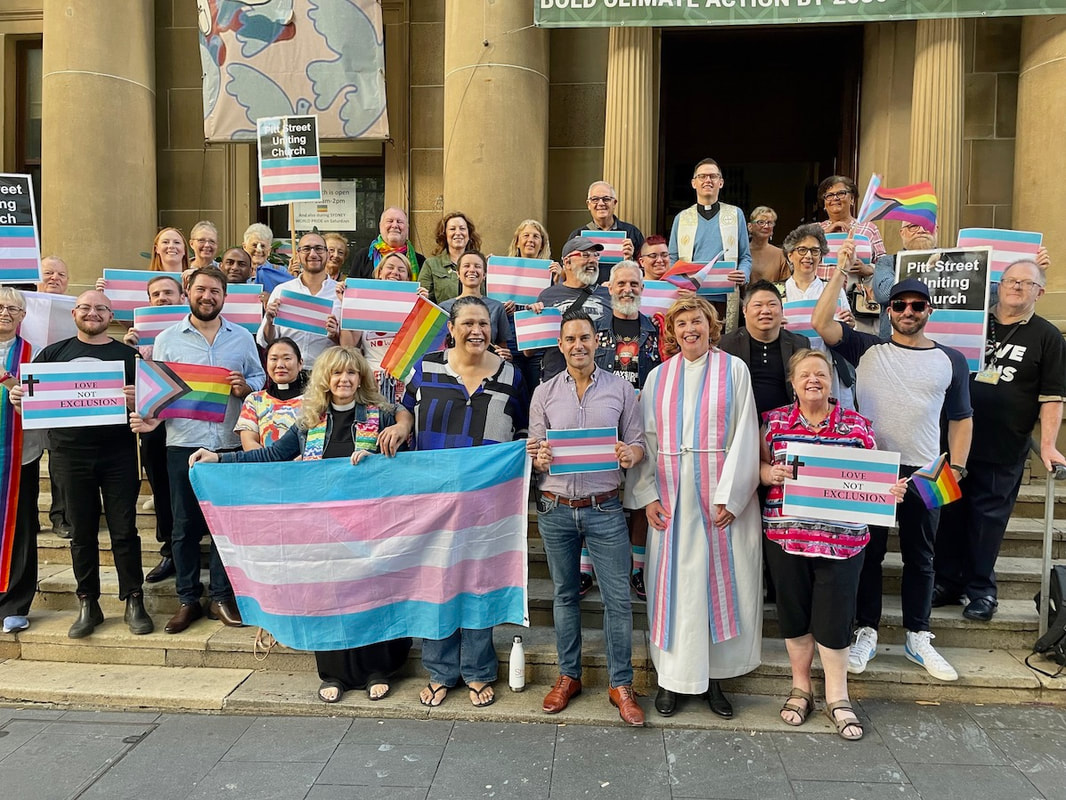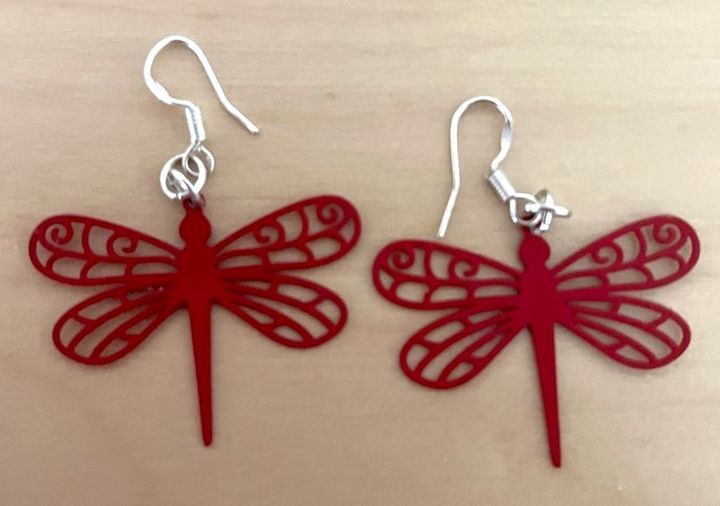 Giving thanks today both for the Trans & Gender Diverse (TGD) Affirming resolution yesterday at the triennial gathering of the Assembly of the Uniting Church in Australia, and, perhaps as or more important, for the overall spirit of discussion. This represents the first specific positive national affirmation of TGD folks in a mainstream Church in Australia and marks a step in the ever more necessary conversations and relationships between TGD & other queer people and communities of faith, not least those of diverse cultural backgrounds. See official Uniting Church Assembly report here...
0 Comments
Thanks to ABBI (in this Trans Awareness Week) for featuring the 25 minute documentary Faithfully Me - now available (after being on ABC licence) here online and for educational use etc. Among other things, it is wonderful to be reminded of the fabulous support I had in coming out from so many Anglicans in southern Queensland - not least my amazing colleagues at St Francis College and in Milton parish, the terrific Dean and community of St John’s Cathedral Brisbane, and our border collie!
A brief synopsis: ‘Coming out as transgender in a Christian environment from two different sides of the pulpit has its challenges. Faithfully Me is a 25 minute documentary that follows the Revd Dr Josephine Inkpin, Australia’s first openly transgender ordained priest, and Rhett Pearson, a transgender man, as they embark on their own individual quests to reconcile their true identities and their faith. Meeting the significant people in their lives gives further richness to their stories.’  This paper (by the Revd Penny Jones and myself) was originally published in Coolamon, Issue 7 March 2023, the journal of the Australian Network for Spiritual Direction). It can be downloaded here. It explores some ways in which LGBTQ+ people contribute to our changing experience of God and reveal paths of enriching spiritual transformation. For sexual and gender identities have been at the heart of some significant recent features of both spiritual growth and conflict. From the late 1960s,1 lesbian, gay, bisexual, transgender and questioning (LGBTQ) 2, or queer3 people have formed increasingly effective social and political movements, transforming many cultural, legal and philosophical norms across the world. For many, this has also involved deliberate or unconscious spiritual expression. Progress has however been uneven, across time and space, and traditional religious formations and spiritual norms have been particular obstacles. Differing, and sometimes conflicting, conceptions of queer people and their gifts are therefore inevitably present within the spiritual direction space. Deeper exploration of these, and the underlying lived spiritual experience of queer people, is thus vital for the further flourishing of all involved. Indeed, whilst aspects may be challenging for some, the authors of this paper affirm that queer spiritual experience and understanding offers gifts which provide renewing insights for spiritual direction practice as a whole. Without unduly entering into wider controversies over sexuality and gender, this paper therefore suggests some life-giving ways to engage. These include exploring aspects of “queer virtues” identified by queer spiritual theologians and the metaphors of “coming out” and “transition” as embodiments of the paschal mystery and healthy, holy, transformation... Budyeri Gamaruwa – greetings in Gadigal. I acknowledge elders, past and present, and all First Nations people here. For before these steps on which we stand existed, this was Aboriginal land. It is, and always will be, Aboriginal land. For true identity, love and self-determination are not ceded by the oppressions of others. That is at the heart of our simple act of solidarity today.
My name is Josephine McDonnell Inkpin. I am a transgender woman and a queer person of faith. including being Minister here at Pitt Street Uniting Church. So I thank you all for coming this morning. For gender diverse people and queer people of faith are very vulnerable right now. We are not surprised by current attacks. In fact, we trans people have been warning about them for ages, but typically our concerns have given little priority -– just as our calls not to issue a visa to an UK rabble-rouser could have helped avoid Nazis on the streets of Melbourne and feeding right wing forces across the country. Similarly, we queer Christians have called for our voices to be heard properly but, with notable exceptions, many key Christian leaders and some queer people have given little priority to our concerns – just as our calls to help us address the now visible Christian Right in Sydney could have helped avoid the violence on Sydney streets. This - must – change: both for the sake of trans people and queer people of faith and for us all. For an attack on any of us is an attack on all of us. Our attackers think that trans people and queer Christians are easy and weak targets. Well, we are so not weak in spirit, but we are not as strong we could be if we had greater voice and empowerment. This simple solidarity photograph is therefore a declaration of that intent...  I speak as both a transgender woman and as an Anglican priest, currently serving as an Uniting Church Minister. As a Queer Christian I am not alone. There are many of us in Sydney, and across the world. For we, and queer people of other faiths, have always existed. We can be found in the Bible, throughout history, and we are very much alive today. Yet our lives are so commonly denied. For we are an inconvenient truth: inconvenient both to the Christians who oppose us, and inconvenient also to others, including some in the queer community, who would deny our lives. As such, we are at the heart of the continuing culture wars we seek to end today and we share in the solidarity and hope which this gathering embodies. Indeed, without us the battles we face together simply cannot be won. We so need each other and we badly need others to hear our voices and act upon them... In the run up to Sydney WorldPride, SBS On Demand 'The Feed' were kind enough to produce a short feature on my wife Penny Jones and I,, which we hope may help and encourage others. Red Dragonflies - naturally - are my choice of earrings for Fr Peter Maher's funeral today (particularly, so close to the Trans Day of Remembrance, as I remember the solidarity and hope Peter offered myself and other dragonfly people).
Red dragonflies especially can be rare to view, and very special (like brilliant loving priests) when the opportunity comes along. Yet, interestingly, they often appear to people surrounding life episodes of loss and death. For the dragonfly is a symbol of go-between people, winged priests of transformation. Death is after all the polarity of Life, and dragonflies help hold together the paradoxes of death in life and life, and eternal love, in death. In Japan the dragonfly is considered to be very sacred and symbols of transition. Red dragonflies appear most often there at the end of summer with the message that autumn is coming. A beautiful Haiku poem reads,” That the autumn season has begun is decided by the appearance of the red dragonfly.” The Japanese embrace the dragonfly as a symbol of courage, strength and happiness while some Native Americans speak of the dragonfly as bringing a time of rejuvenation after a long period of trials and hardship. Indeed they have traditionally perceived dragonflies as the “souls of the dead” - so a dragonfly visitation around a loved one’s death could well signify the loved one’s soul taking form in the spirit of dragonfly. It offers the assurance their soul is free. Fly wonderfully Peter in perfect light - just as you helped we others find their wings and reflect that light  It was good to attend the first day of the APSA Workshop on Religion and Politics After Marriage Equality at Macquarie University this week - although I was unable due to illnes to be at the second day - with many thanks to Dr Eleneie Poulos and Kate Gleeson for putting together such a brilliant program, and to all the other speakers for sharing their insights. Much to think about on this topic with a new federal government. My own paper - 'On climbing out from under the bus: queer faith futures in a cisgender world' can be read here It is (sadly) interesting to me that, whilst I am a lifelong Anglican, and one with decades of helping lead Anglican teaching and formation, my mother Church tradition rarely asks me to contribute to ways out of its neurotic obsessions with sexuality and gender, whereas others in other spaces do (‘a prophet is not without honour’ and all that?).
Here is a latest offering, with thanks to The Sisters of the Good Samaritan for the opportunity to offer a brief perspective on how flourishing LGBTIQA+ lives flow out core elements of Catholic wisdom down the centuries - not least in considering family, the Body, natural law, the imago dei, and God’s grace in Creation. For: ‘this is about reclaiming Catholic emphases on the centrality of God’s grace in the diverse expressions of creation and incarnation, rather than imposing false ideas of sin and shame on those who are actually gifts to help lead us into greater life together. LGBTIQA+ people of faith do not need welcome, or inclusion, for we are already at home with God, as family members and part of Christ’s Body, wholly natural, and imaging the divine in our diverse ways. What we do need is space to flourish, and thereby we can enable others to flourish also.’ See link to the article iFlourishing Together' in The Good Oil here - or text below... Recent weeks have been some of the hardest of my life in Christian ministry. Discussion of the Religious Discrimination Bill proposals fell into another debacle in the midst of concerted opposition and some brave Liberal backbenchers who stood out against the Bill's cruelty in the face of approaching election pressures. The political use and abuse of transgender people, especially school children, was particularly monstrous. Coming on top of several years of similar controversy and very slow positive changes in Churches, the pastoral burdens and spiritual impact was hard to bear. Thankfully, in the Uniting Church at least, opposition to the form of the Bill was expressed from the top clearly and positively. Particularly encouraging was the UCA President's Pastoral Letter which opens up possibilities for real progress, especially in addressing the deficit in transgender and non-binary care and celebration. In general however, there is such a long way to go and the 'gruesome week' demonstrated that amply. Media outlets, notably ABC's The Drum (see, for example, the clip on YouTube above) and the Guardian Australia (see article here) were kind enough to interview me and share some of my LGBTIQ+ faith perspectives, which I know are so vital to so many.
|
AuthorJo Inkpin is an Anglican priest serving as Minister of Pitt St Uniting Church in Sydney, a trans woman, theologian & justice activist. These are some of my reflections on life, spirit, and the search for peace, justice & sustainable creation. Archives
July 2024
Categories
All
|



 RSS Feed
RSS Feed